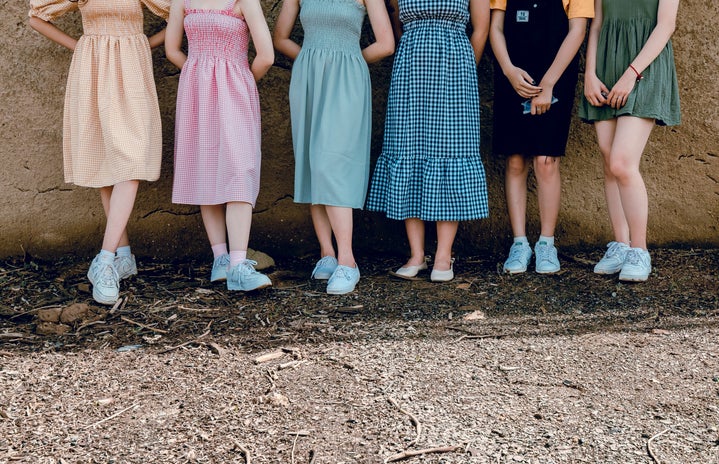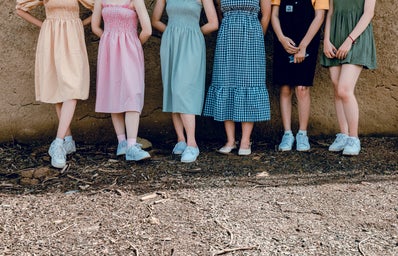20th Century Women is unlike most films in that it lacks a distinct plot to move it forward. I think what makes it so unique is its focus on people, the beauty of everyday life and how the times deeply affect the different kinds of people living through them. The house it is set in is used as a microcosm for wider society and serves to highlight great generational differences all co-existing under one roof. Each character deserves their own separate review as 20th Century Women feels more like reading a good book full of complex, multidimensional characters than anything else. An impressive feat given the fact it cannot give you endless pages of description like a book can.
Personally, I think the most interesting character of all is the mother, Dorothea. She is both within and without the vast generational shift that is occurring within her very own home. She is watching her son growing up in a world that simultaneously perplexes and intrigues her. She dabbles in the new music of the era featuring bands like The Talking Heads and struggles to understand its unorthodox style (lack of clear lyrics or, in her opinion, obvious talent) which, to me, is at the crux of this generational schism that sits between her and her son Jamie. Dorothea so desperately wants to immerse herself in the world he inhabits, yet eventually admits the sad truth that she will never get to see her son out there as a person; something all parents are unable to do. Whilst the film’s focus is on a particular time and place in history (1970s American suburbia), I believe the truths revealed to the audience are something applicable to all places and times. Parents will inevitably feel a sense of detachment not simply from their own children and their personhood, but also from the new world their children are growing up in. Dorothea is wistful for both the past and the present. She wants to be a careless, impulsive teenager once more but also, she endeavours to inhabit someone she never was purely because this new generation is nothing like her own. The kind who stay up all night screaming nonsensical lyrics from The Talking Heads or who speak far more openly about female pleasure and feminist matters.
The bohemian dynamic of the house massively stands out as it is extremely matriarchal and therefore lacks the classic patriarch of a domineering husband or father. The two men in the home are amenable people who are actually mellowed by the overarching female atmosphere. This is another great thing about 20th Century Women: it explores a different type of masculinity from what we are used to – even in the 21st century. The film truly plays around with and subverts gender norms. Dorothea is seen mostly in overalls and more functional, working clothes and resides as the woman of the house. No husband, no partner. The conclusion of the film is not focused on her finding love or on stability being sought through a male figure that can be found in most other storylines.
We see her son Jamie being gradually shaped and moulded into the man he will eventually become based on the women in his life. Another inhabitant is a very outspoken woman named Abbie who shares his joy for dancing around erratically to the latest bands and speaking out about feminism. In fact, Dorothea even asks Abbie and Jamie’s best friend Julie to educate him about life itself and help him to grow into the kind of man she wants him to be. Abbie lends him various feminist books that educate him about female pleasure. One of my favourite scenes is at the dinner table where she makes everyone say menstruation and completely subverts the old ways of shaming ordinary female processes. By breaking down all of these taboos that surround Jamie, it brings hope and enlightenment that the new generation will be better. The house paves the way for a much more progressive and enlightened future that calls into question the very notion of manhood. I think this is what really struck me about 20th Century Women is that it highlights how so much of what we are and who we become is a product of our environment. And, on a wider scale, how much our generation’s attitude to life impacts who we are. Jamie will grow up to be very different from his peers and especially from someone like his absent father because of his unorthodox upbringing.
There is no grand finale or one major event that the film is leading up to. We are just given a glimpse into these character’s lives and shown what they are living through on both a big and small scale. I love this style as it reminds me of another one of my favourite films – Lady Bird. Its so interesting to see raw, everyday people living their lives and being shaped and moulded by every little experience and interaction they have.
This article is part of a themed content week celebrating our fantastic Contributing Writers. The role is flexible, fun, free and open to anyone!



